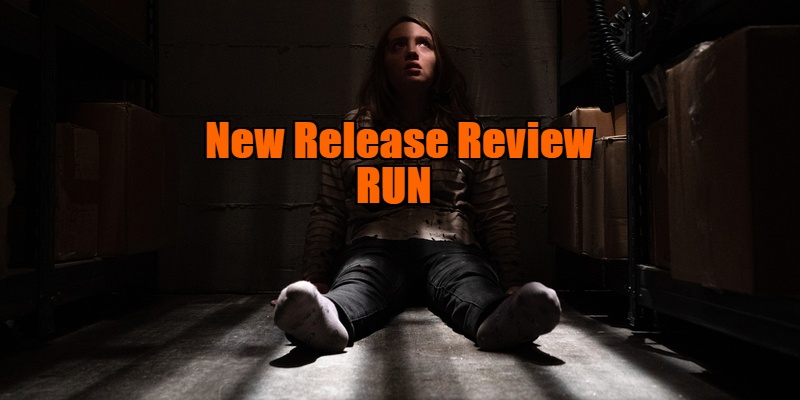
Review by
Eric Hillis
Directed by: Aneesh Chaganty
Starring: Kiera Allen, Sarah Paulson, Pat Healy, Sara
Sohn
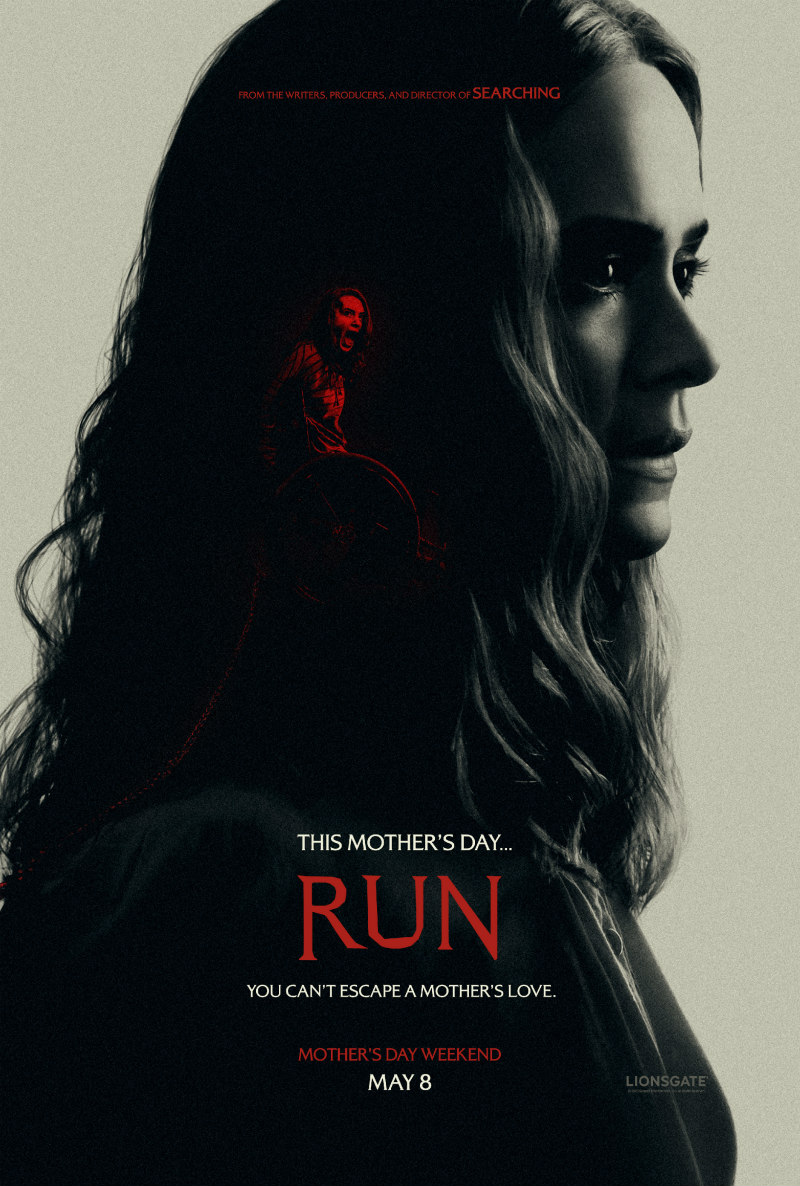
I was trying to decide if Run could be considered an
entry in the "Psycho Biddy" sub-genre. Sarah Paulson seems a
little fresh-faced to be considered a biddy, but she's only a few years
younger than Joan Crawford was when she made
What Ever Happened to Baby Jane?, and a half decade older than Faye Dunaway when she played a sadistic
Crawford in Mommie Dearest. I guess moisturiser has come on a lot over the decades.
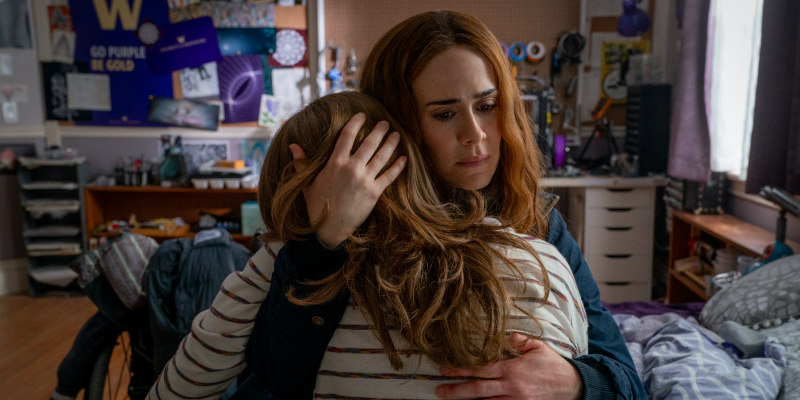
Anyway, Run falls squarely into the Psycho Biddy genre.
Such movies, also sometimes known as "hagsploitation", usually feature a
woman enacting cruelty on a vulnerable character, often out of some form
of jealousy. In this case Diane Sherman (Paulson) has been drugging her
daughter Chloe (Kiera Allen) since childhood, exacerbating the
debilitating conditions she was born with. In a clever twist on the
trope of opening a movie with a dictionary definition,
Run gives us no less than five definitions of the various
conditions afflicting Chloe - arrhythmia, hemochromatosis, asthma,
diabetes, and paralysis.
Now aged 17 and confined to a wheelchair, Chloe is eagerly awaiting
acceptance to college, but no such acceptance letter materialises. When
Diane keeps intercepting the mail, Chloe grows suspicious, and her
doubts about Mommy are raised further when she starts administering a
mysterious new drug. Chloe tries to look up the drug online, only to
find the internet has been suspiciously disconnected. Desperate for an
answer as to just what Diane is up to, Chloe takes increasingly extreme
measures to go behind her mother's back.
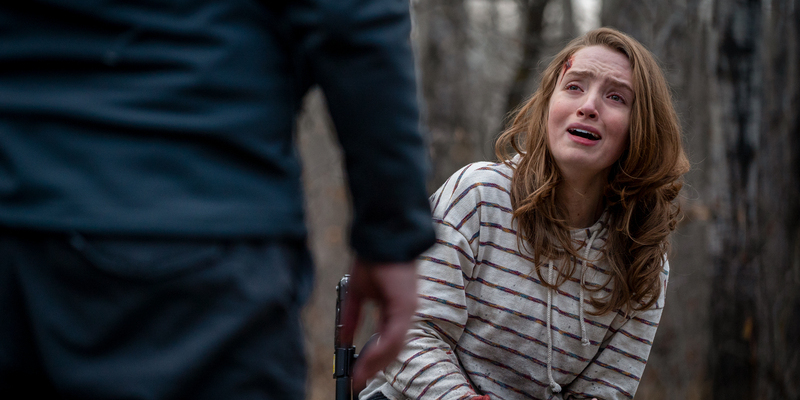
Writer/director Aneesh Chaganty made an impressive feature debut
with his clever "screenlife" thriller
Searching, which like the
Unfriended
movies, played all its action out on its protagonist's laptop screen.
For his follow-up he's settled for more conventional storytelling, and
it often feels as though he's trying to distance himself as far as
possible from his tech-savvy debut. Once the internet is cut, modern
tech is practically absent from Run, which makes you wonder why he didn't just set the film at some point
in the past to avoid such inconveniences. It's a little hard to swallow
that a modern American teenager wouldn't own a cellphone, particularly
one as reliant on communication as Chloe. There's also a curious absence
of outside parties, save for the postman who pops by daily – doesn't
Chloe have any friends?
Overlook such niggling questions and for much of its running time
Run is a lot of fun. Paulson can pull off the deranged
soccer mom act in her sleep, and is genuinely intimidating here, the
sort of woman who wins arguments with retail clerks simply because they
just want to get her the hell out of their store. A genuine wheelchair
user, Allen is quite a find, adept in both the movie's lighter comic
moments and those that put her in peril. Having a victimised disabled
protagonist in a thriller always run the risk of coming off in poor
taste, but Chaganty and co-screenwriter Sev Ohanian have made
sure to give Chloe enough agency that while we root for her, we're never
put in a position where we feel sorry for her because of her ailments –
she's portrayed as intelligent and resourceful.
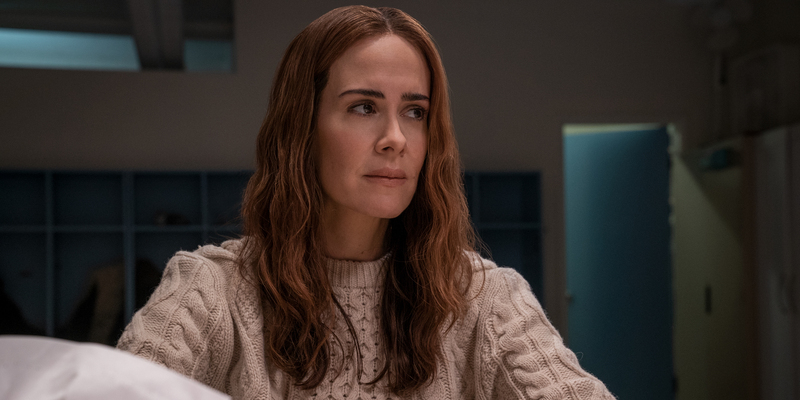
It's a shame then that as the film progresses and we learn the full
extent of the dynamic between Diane and Chloe, that it becomes
increasingly hard to swallow. What transpires just doesn't hold up to
any sort of scrutiny, and again it would have made sense to set this
story in a past era where it might have played a little more plausibly.
As a director, Chaganty certainly has chops, and his suspense sequences
are impressively and economically assembled, but as a writer he's found
lacking here. Run might be described as a bigger budget
Lifetime thriller of the week, but for all their cheese, Lifetime
thrillers generally boast much more airtight plotlines than can be found
in Chaganty's difficult second movie.


